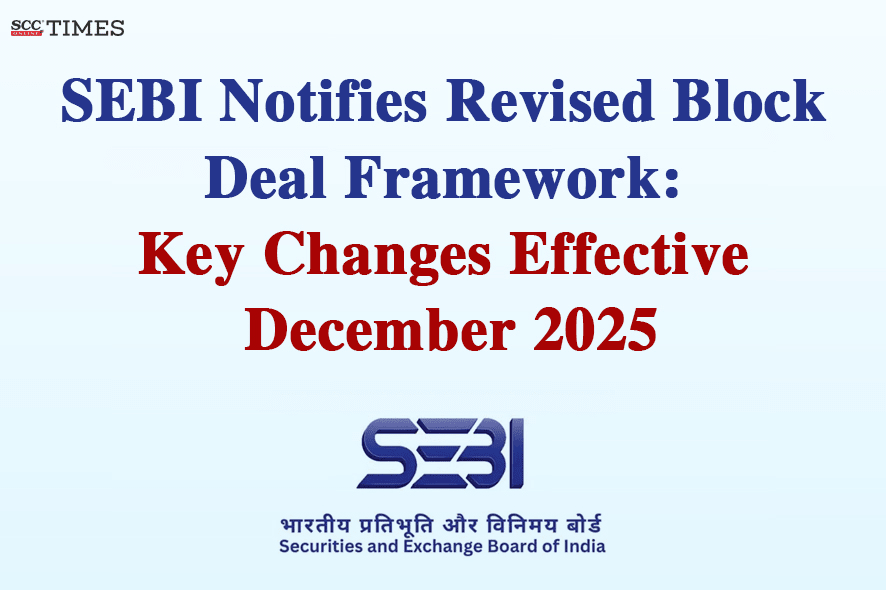On 8-10-2025, the Securities and Exchange Board of India (‘SEBI’) notified the Review of Block Deal Framework, introducing a series of amendments aimed at strengthening transparency, efficiency, and regulatory oversight in large-volume equity trades. These changes reflect evolving market conditions and are based on recommendations from a SEBI Working Group, deliberations in the Secondary Market Advisory Committee (‘SMAC’), and public feedback.
The revised framework will be effective 60 days from the date of notification, i.e., 7-12-2025.
Key Takeaways:
-
A block deal refers to the execution of large trades through a single transaction, typically negotiated between two parties, without putting either the buyer or seller at a disadvantage. These trades are conducted in designated windows outside the regular market to minimize price disruption
-
SEBI has formalized two distinct trading windows for block deals:
-
Morning Block Deal Window:
○ Timing: 08:45 AM to 09:00 AM
○ Reference Price: Previous day’s closing price
-
Afternoon Block Deal Window:
○ Timing: 02:05 PM to 02:20 PM
○ Reference Price: Volume Weighted Average Price (‘VWAP’) of trades executed between 01:45 PM and 02:00 PM
○ VWAP is calculated and disseminated between 02:00 PM and 02:05 PM
-
-
SEBI’s revised Block Deal Framework introduces several important changes to improve market transparency and efficiency.
-
The minimum order size has been increased from ₹10 crore to ₹25 crore, reflecting deeper market liquidity and institutional activity.
-
The price band for block deals has been widened to +3% of the reference price, offering more flexibility than the earlier ±1% range.
-
All trades must result in actual delivery, squaring off or reversal is not permitted. Block deals are now allowed under both the T+1 and optional T+0 settlement cycles.
-
Exchanges must disclose block deal details, including scrip name, client identity, quantity, and price, after market hours on the same day.
-
Additionally, exchanges, clearing corporations, and depositories are required to apply standard trading, settlement, and surveillance protocols to block deal windows, ensuring consistency with regular market operations.
-
Market Infrastructure Institutions (‘MIIs’) have been directed to take necessary steps:
-
Implement necessary systems and processes
-
Amend relevant byelaws, rules, and regulations
-
Disseminate the circular to market participants and investors via their websites
-
-
By raising thresholds, expanding price bands, and enforcing delivery and disclosure norms, the framework ensures that block deals remain a transparent and efficient mechanism for executing large trades.


